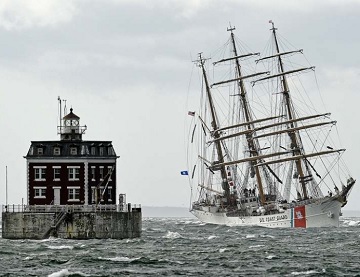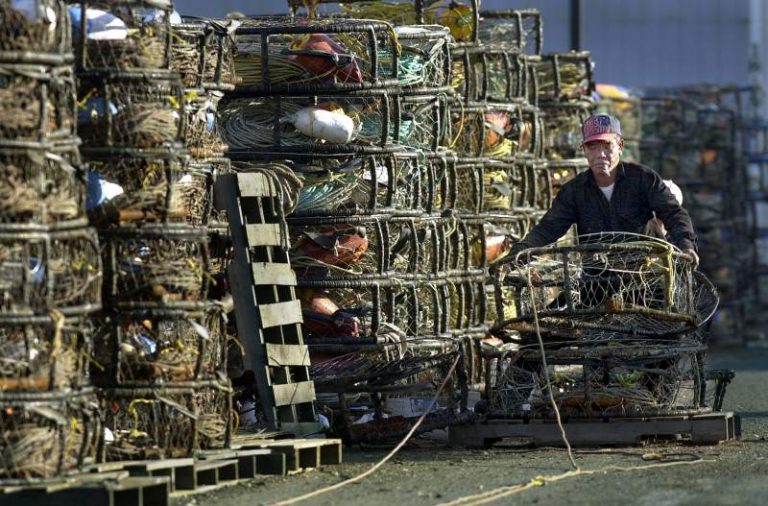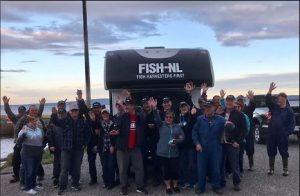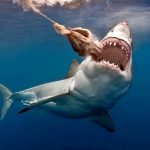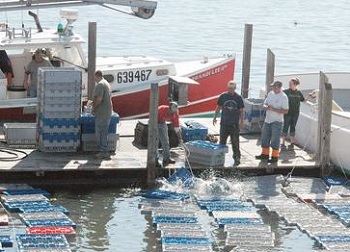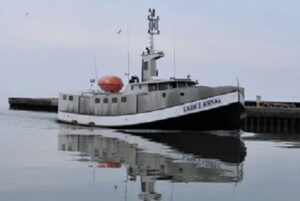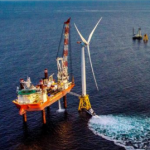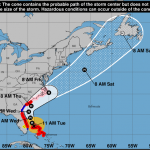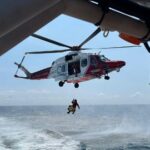Tag Archives: Germany
Collapse of Germany’s offshore wind subsidies a cautionary tale for Canada
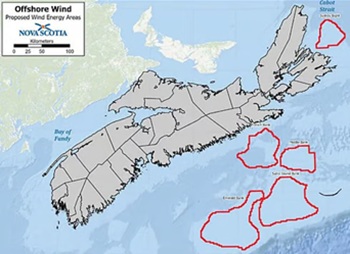 It’s an ill wind that blows nobody good. And in Germany, it might be better if the wind didn’t blow at all after the European Union member moved to start dismantling its flagship Alpha Ventus project after just 15 years. Despite its role as a pioneering wind farm, Alpha Ventus is being shut down — not because of technological failure, but because it is no longer financially viable without massive government subsidies. For Canada, which hopes to use offshore wind to support industries like green hydrogen production, the German experience raises critical questions about the long-term economics of offshore wind power. Without sustained financial support, will Canada’s ambitious offshore wind plans suffer the same fate? Germany has long been a global leader and pioneer in renewable energy. Alpha Ventus was built in 2009 as its first offshore wind farm, benefiting from generous state subsidies. more, >>CLICK TO READ<< 07:44
It’s an ill wind that blows nobody good. And in Germany, it might be better if the wind didn’t blow at all after the European Union member moved to start dismantling its flagship Alpha Ventus project after just 15 years. Despite its role as a pioneering wind farm, Alpha Ventus is being shut down — not because of technological failure, but because it is no longer financially viable without massive government subsidies. For Canada, which hopes to use offshore wind to support industries like green hydrogen production, the German experience raises critical questions about the long-term economics of offshore wind power. Without sustained financial support, will Canada’s ambitious offshore wind plans suffer the same fate? Germany has long been a global leader and pioneer in renewable energy. Alpha Ventus was built in 2009 as its first offshore wind farm, benefiting from generous state subsidies. more, >>CLICK TO READ<< 07:44
The ‘sustainable’ cod in your shopping basket may be no such thing – new study reveals mislabelling
 Cod sold in some European supermarkets is being mislabeled and is actually fished far from its claimed origin, according to our new study. We sampled cod sold in Germany, Spain, France and the UK and found that about 30% of it originated in a different location. Seafood mislabeling, in which one species is sold as another, is a common problem. It may happen by mistake or by deliberate fraud, in which case, there is at least hope for improvement, as various DNA methods are now available for testing species. But our new research highlights another problem: the mislabeling of geographical origin. As with species mislabeling, this issue can affect the sustainable management of fisheries, the conservation of fish in the wild and consumer trust. more, >>CLICK TO READ<< 14:53
Cod sold in some European supermarkets is being mislabeled and is actually fished far from its claimed origin, according to our new study. We sampled cod sold in Germany, Spain, France and the UK and found that about 30% of it originated in a different location. Seafood mislabeling, in which one species is sold as another, is a common problem. It may happen by mistake or by deliberate fraud, in which case, there is at least hope for improvement, as various DNA methods are now available for testing species. But our new research highlights another problem: the mislabeling of geographical origin. As with species mislabeling, this issue can affect the sustainable management of fisheries, the conservation of fish in the wild and consumer trust. more, >>CLICK TO READ<< 14:53
Offshore Wind is no breeze
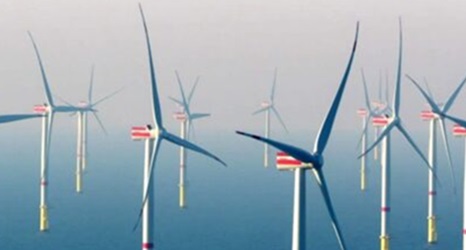 This may just be a tad too radical for some, but I believe there’s a chance the great offshore wind boom is in serious danger of coming to a screaming halt and for the consumer, this may not be a bad thing. In fact, the more I think about it the more I believe that it may be a very good thing. Why? Well, let’s do the easy bit first. For Scotland, the industrial benefit of offshore wind is extremely limited and if the offshore wind industry disappeared overnight, it wouldn’t be as huge a loss to us as it would to countries such as Denmark, Germany and of course, China. You can argue about that amongst yourselves but anyway what’s much more likely to put the brakes on offshore wind is that the cost of offshore wind projects has increased dramatically and it’s increasingly difficult to see how to make money out of it without huge government guarantees and yet the minimum strike price being offered by governments under contracts for difference deals hasn’t been high enough to deal with that. It’s the reason the Danish Energy Agency didn’t receive a single bid for any of the three offshore wind farms last month. more, >>CLICK TO READ<< 08:25 By Dick Winchester
This may just be a tad too radical for some, but I believe there’s a chance the great offshore wind boom is in serious danger of coming to a screaming halt and for the consumer, this may not be a bad thing. In fact, the more I think about it the more I believe that it may be a very good thing. Why? Well, let’s do the easy bit first. For Scotland, the industrial benefit of offshore wind is extremely limited and if the offshore wind industry disappeared overnight, it wouldn’t be as huge a loss to us as it would to countries such as Denmark, Germany and of course, China. You can argue about that amongst yourselves but anyway what’s much more likely to put the brakes on offshore wind is that the cost of offshore wind projects has increased dramatically and it’s increasingly difficult to see how to make money out of it without huge government guarantees and yet the minimum strike price being offered by governments under contracts for difference deals hasn’t been high enough to deal with that. It’s the reason the Danish Energy Agency didn’t receive a single bid for any of the three offshore wind farms last month. more, >>CLICK TO READ<< 08:25 By Dick Winchester
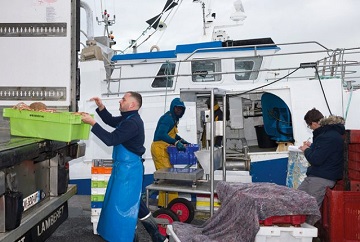
The European Union’s Plan to Ban Bottom Fishing is Causing Widespread Outrage
The plan, which seeks to ban bottom trawling in protected areas, has caused widespread demonstrations, disruption of work in ports, and the launch of a protest movement by fishermen in France called “Blocked Ports”. Although the Commission’s proposals do not represent new legislation, and will not be implemented soon in a way that satisfies some environmental protection non-governmental organizations, they have been met with strong opposition from a number of member states. There was outrage in Germany, Spain, Portugal, Italy, Ireland and Denmark, who feared the plan would endanger the entire fishing industry. The “Marine Action Plan” for sustainable fishing was announced on February 12, and it includes initiatives to phase out deep-sea trawling in protected areas. >click to read< 08:51
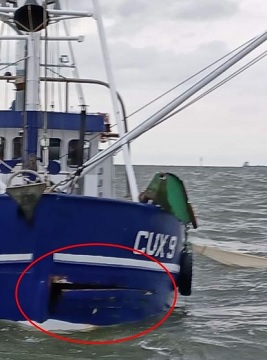
Possible minor allision causes fishing vessel foundering
At about 0530 on 21 September 2021, the German-flagged fishing vessel Ramona set sail from Cuxhaven for the Heligoland Bight. There were five people on board: two crew members and three scientists from the Thünen Institute of Sea Fisheries Bremerhaven. Since the swell was continuously increasing, everyone on board decided to sail back so as to make further hauls3 in calmer waters for scientific evaluation. At about 0900, the skipper noticed that planks in the fore section were coming loose and the vessel was making water. >click to read< 08:31

Atomic Attraction: Wind Power’s Abject Failure Forces Europe to Embrace Nuclear Power
To call Europe’s rapid embrace of nuclear power ‘passionate’ is not overstatement. Much to the horror of wind and solar acolytes, a growing number of EU members are ready to declare nuclear power is not only clean and green, but wholly sustainable. Wind and solar-obsessed Germans and Brits are watching power prices go into orbit and the pro-renewables camp has been forced to grapple with months-long wind droughts when so-called ‘green’ energy couldn’t be bought at any price. Necessity may well be the mother of invention, but the stark realisation that wind power output can collapse for days and weeks on end is certainly the mother of a renewed attraction to nuclear power. >click to read< 11:16
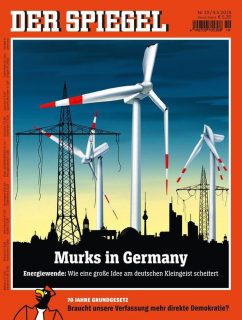
The Reason Renewables Can’t Power Modern Civilization Is Because They Were Never Meant To
Over the last decade, journalists have held up Germany’s renewables energy transition, the Energiewende, as an environmental model for the world. “Many poor countries, once intent on building coal-fired power plants to bring electricity to their people, are discussing whether they might leapfrog the fossil age and build clean grids from the outset,” thanks to the Energiewende, wrote a New York Times reporter in 2014. With Germany as inspiration, the United Nations and World Bank poured billions into renewables like wind, solar, and hydro in developing nations like Kenya. But then, last year, Germany was forced to acknowledge that it had to delay its phase-out of coal, and would not meet its 2020 greenhouse gas reduction commitments. It announced plans to bulldoze an ancient church and forest in order to get at the coal underneath it. >click to read< 21:49
U.K. to End Half Century of Fishing Rights in Brexit Slap to EU
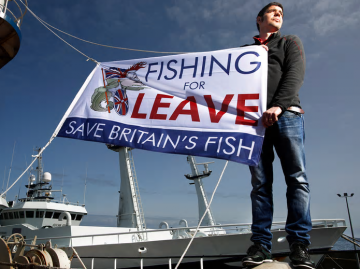 Prime Minister Theresa May will pull Britain out of the 1964 London convention that allows European fishing vessels to access waters as close as six to twelve nautical miles from the U.K. coastline. Britain’s withdrawal from the European Union was already going to stop fishing by European boats within 12 to 200 nautical miles (22 to 370 kilometers) of British shores, but this move goes even further in terminating historic rights enjoyed by France, Belgium, Germany, Ireland, Netherlands that predate the U.K.’s own entry into the EU. “For the first time in more than fifty years we will be able to decide who can access our waters,”,,, click here to read the story 19:34
Prime Minister Theresa May will pull Britain out of the 1964 London convention that allows European fishing vessels to access waters as close as six to twelve nautical miles from the U.K. coastline. Britain’s withdrawal from the European Union was already going to stop fishing by European boats within 12 to 200 nautical miles (22 to 370 kilometers) of British shores, but this move goes even further in terminating historic rights enjoyed by France, Belgium, Germany, Ireland, Netherlands that predate the U.K.’s own entry into the EU. “For the first time in more than fifty years we will be able to decide who can access our waters,”,,, click here to read the story 19:34






